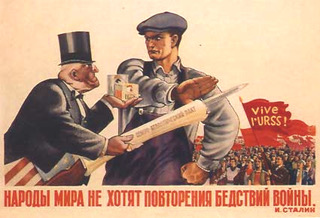“The peoples of the world do not want a repetition of the scourge of war.”
Psychology has a complicated relationship with the world at large, often seen as something to be a bit wary of. Like nuclear engineering it has the ring of something easily corrupted and dangerous about it, even when supposedly doing good. There have been countless works of fiction that focus on how abusive partners, shadowy corporations, sinister state bodies or the unknowable Establishment have used mental illness and the threat of hospitalisation as a way to crush the valiant hero or silence dissenting voices.
“One Flew over the Cuckoo’s Nest” and “Poppy Shakespeare” are two such examples where the narrative serves as a study of the institutional processes that punish rather than heal. Often these works veer close to reality in surprisingly uncomfortable ways. But why focus on the fictional crushing of one individual when we have historic evidence of psychology being used to exert control and compliance on whole sections of society.
Psychology’s figures of authority, as in any discipline, are often conservative and traditionally powerful voices – wealthy, white, straight and male. These figures are influenced by the bias and mores of their time but they also have the power to reinforce these biases and justify them through their field. Scientific racism perpetuated the idea of the white man as master of all and psychology was just one tool used to reinforce it.
Dysaesthesia aethiopica was an alleged mental illness of laziness among slaves and Drapetomania caused them to run away. Both fictionalised illnesses that explained why kidnapped black Africans and their descendants could be unwilling to play the part of happy slave to their “owners”. Philosophical and religious texts now had science to back them up, white justification had be obtained and validated.
In the 1930’s schizophrenia was classified as a “white middle-class woman’s disease”, it became a way of punishing women unwilling or unable to fit the rigid gender norms of the day. Emphasise was placed on the negative impact of “schizophrenogenic styles” on abilities to perform as mothers and wives. These patients were not seen as a threat but a disappointment. Charts read as petty excuses to keep women locked away, occasional for life: /This patient wasn’t able to take care of her family as she should. This patient is not well adjusted and can’t do her housework./ and /She got confused and talked too loudly and embarrassed her husband./
By the mid 1960s schizophrenia had transformed into an “African-American man’s disease”. Hospital charts diagnosed these men because of their symptoms, but also because of their connections to the civil rights movement. Charts stressed how these men were physical threats: /Paranoid against his doctors and the police and Would be a danger to society were he not in an institution./ Daring to the question a system of oppression or to go as far as threatening to smash it entirely was automatically coded as abnormal and something to be fixed. The system itself could not be the problem.
Psychology’s scientific merit is rarely questioned now, we do not think of it being associated in anything quite as nefarious as classifying single women who wear trousers as “unbalanced” any more. A part of mainstream research it is routinely employed in marketing strategies and Human Resource Management classes. Businesses know the right way to phrase a slogan or use a colour to illicit particular emotions and responses to their benefit, both workers and “consumers” fall victim to this. It’s not quite on the nose as locking people away but why would that be needed when people can be made to trap themselves. More terrifyingly, most psychological research is now being done by or is funded by private companies seeking new ways to influence and change human behaviours, their motivations are purely capitalist in nature.
It is rare the other side, the human resources, the workers looks at this field in any real depth. If businesses can use simplified analysis in the search for profit shouldn’t trade unions and workers study it for the opposite, perhaps even emancipatory goals? Psychology was heavily promoted by the Bolsheviks as a way to engineer the “New Man” of socialism.
While that might be a step to far for some, psychology has also be a part of ground breaking expansions of our collective understanding of gender, sexuality and race, though class is conspicuously absent. As well as being a tool of oppression psychology can be and has been revolutionary. The study of human behaviour is far too important to be left to those who would warp that behaviour and use it to shackle us. Insanity may be the only sane reaction to an insane society but we could give driving them mad a shot too.






